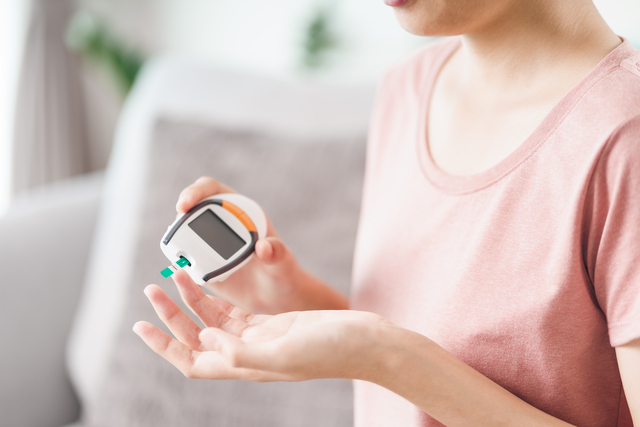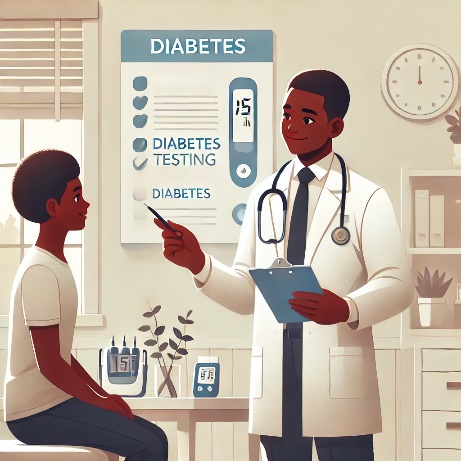Why Is Early Detection Important?
When diabetes is left undiagnosed or untreated, high blood sugar levels can harm the body over time. This damage can lead to complications like heart disease, nerve damage, kidney problems, vision loss, and even problems with the feet and skin. These complications can be severe, but they can often be prevented or delayed with early detection and treatment.
By finding diabetes early, people can start managing their blood sugar levels sooner. With the right care, many people with diabetes can lead full, active lives.

Who Should Be Tested?
Everyone can benefit from understanding their risk of diabetes. Some people are at higher risk than others. You may have a higher risk if you:
Are over 45 years old
Have a family history of diabetes
Are not very active
Have high blood pressure, high cholesterol, or high triglycerides
Are of a certain ethnic background, such as African American, Hispanic, Native American, or Asian American
Had diabetes during pregnancy (gestational diabetes) or gave birth to a baby over 9 pounds
If you have any of these risk factors, it’s a good idea to talk to your doctor about getting tested for diabetes. For most people, a simple blood test can show if you have diabetes or if you’re at risk.

How Is Diabetes Detected?
There are a few common tests to check for diabetes. These include:
Fasting Blood Sugar Test: Measures blood sugar after fasting overnight.
A1C Test: Provides an average blood sugar level over the past two to three months.
Oral Glucose Tolerance Test: Measures blood sugar before and after drinking a sweet drink to see how well your body processes sugar.
The Importance of Early Detection in Managing Diabetes
Diabetes is a common condition that affects millions of people worldwide, but not everyone knows they have it. Detecting diabetes early can make a big difference. It can help prevent serious health problems, improve blood sugar control, and lead to a healthier, happier life.
These tests can help doctors determine if you have prediabetes, type 1 diabetes, type 2 diabetes, or gestational diabetes (which occurs during pregnancy). Early detection allows people with prediabetes to make lifestyle changes to prevent or delay the onset of type 2 diabetes.

Benefits of Early Detection
When diabetes is detected early, it’s easier to take steps to manage it. People who know about their condition can make choices to improve their health, including:
Healthier Eating: Choosing foods that keep blood sugar levels steady.
Regular Exercise: Staying active can help control blood sugar and improve mood.
Medication and Monitoring: For some people, medications or insulin may be needed, along with regular blood sugar checks.
Better Overall Health: Early intervention can reduce the risk of complications and help people with diabetes live longer, healthier lives.
What’s Next?
If you or a loved one has risk factors for diabetes, don’t wait—consider scheduling a check-up. The sooner diabetes is detected, the sooner steps can be taken to manage it effectively. By staying informed and being proactive about your health, you can help prevent the complications of diabetes and improve your quality of life.
Early detection of diabetes is not just a test; it’s a step toward better health and well-being


Thanks, information is good to know.